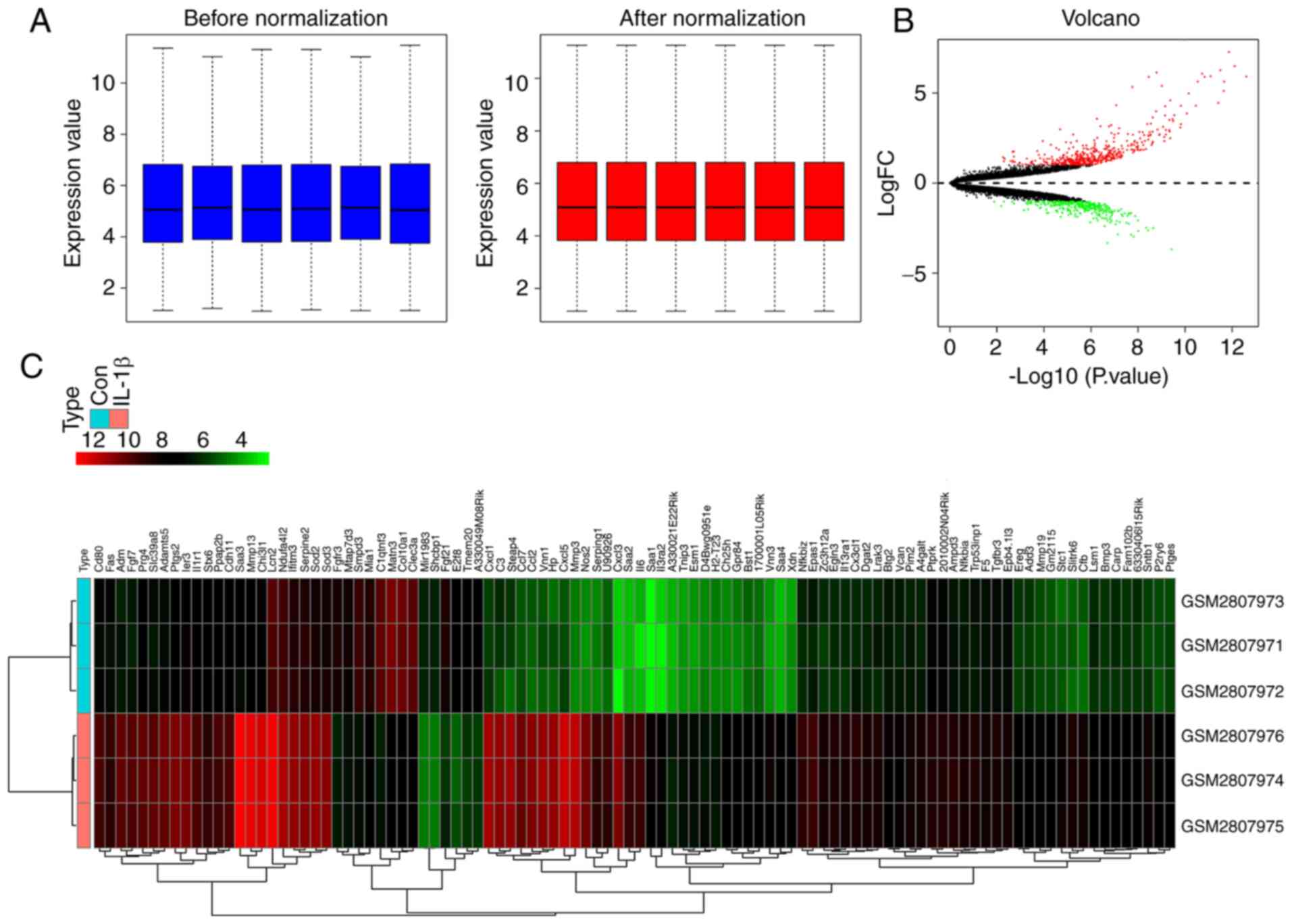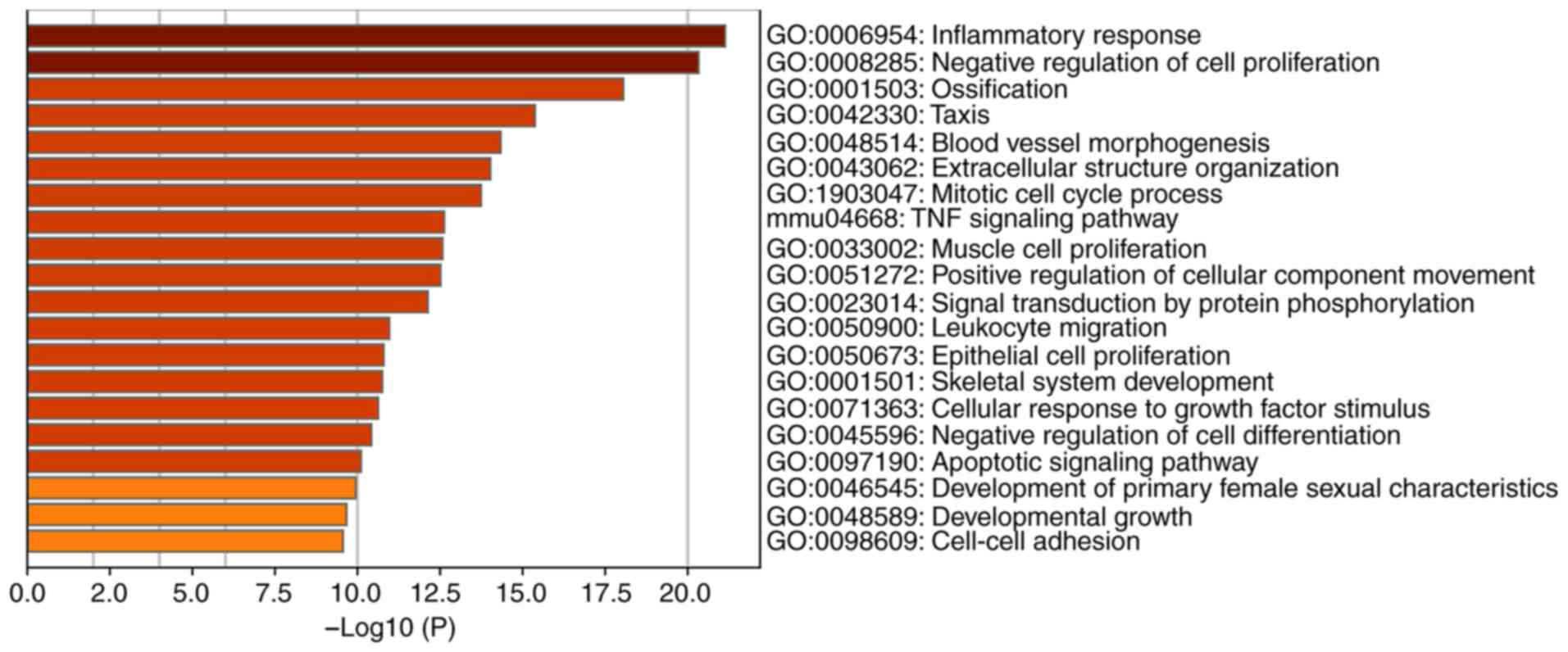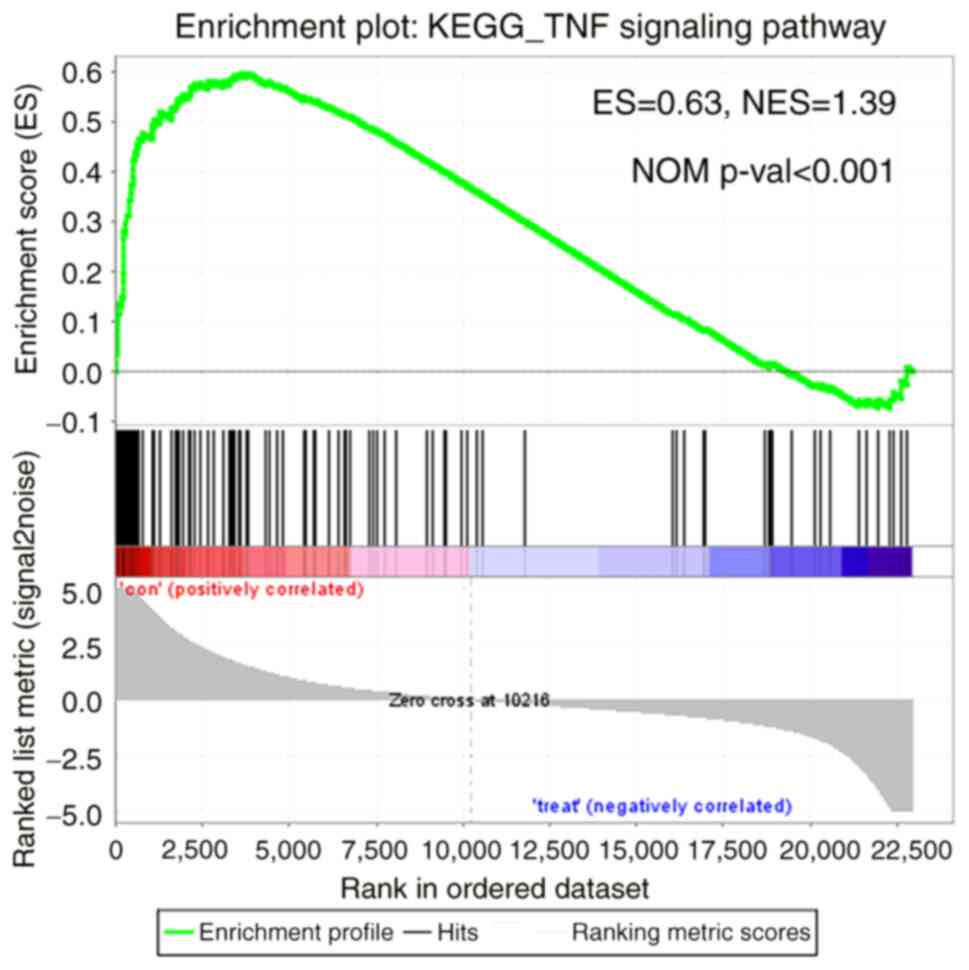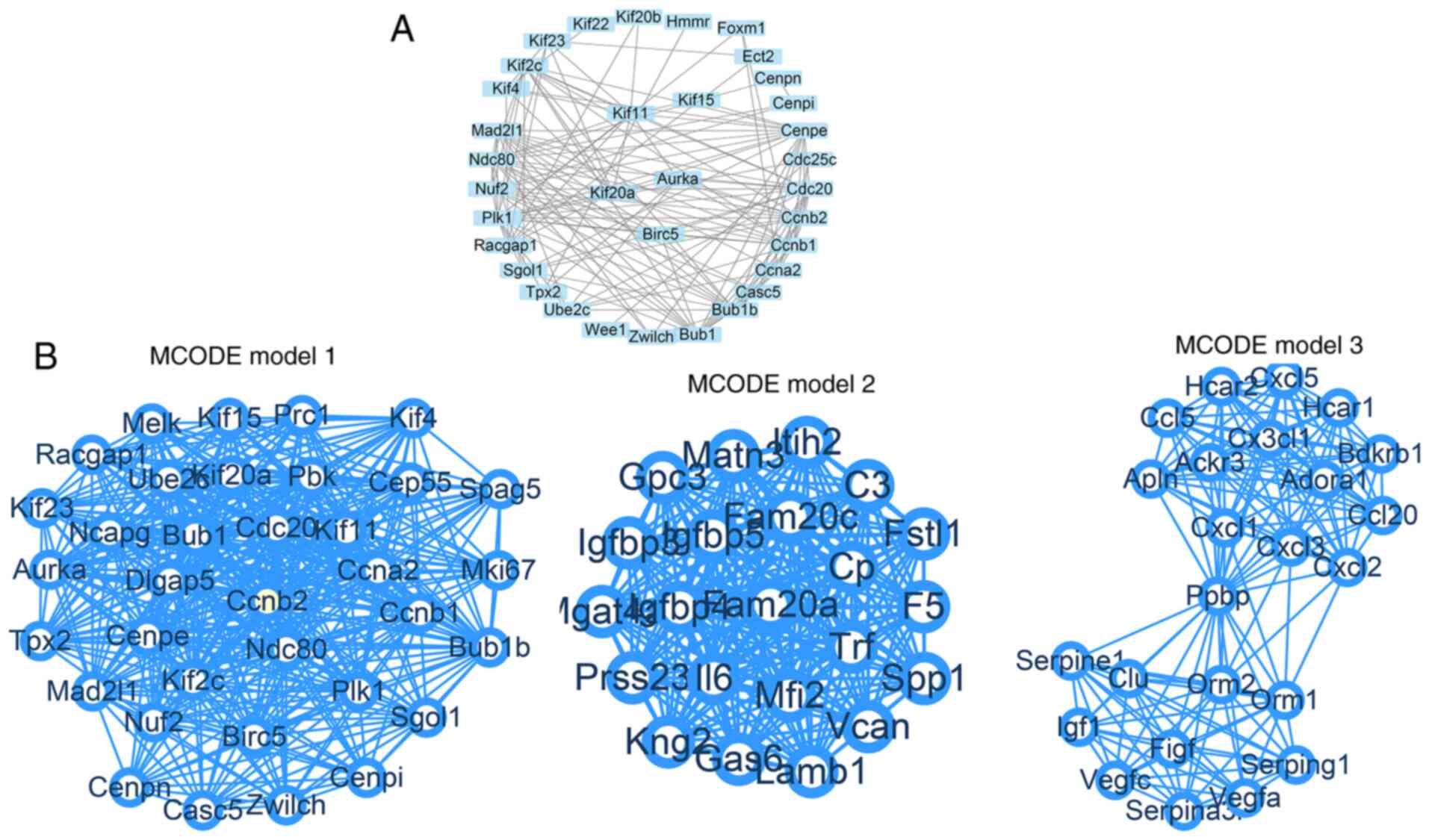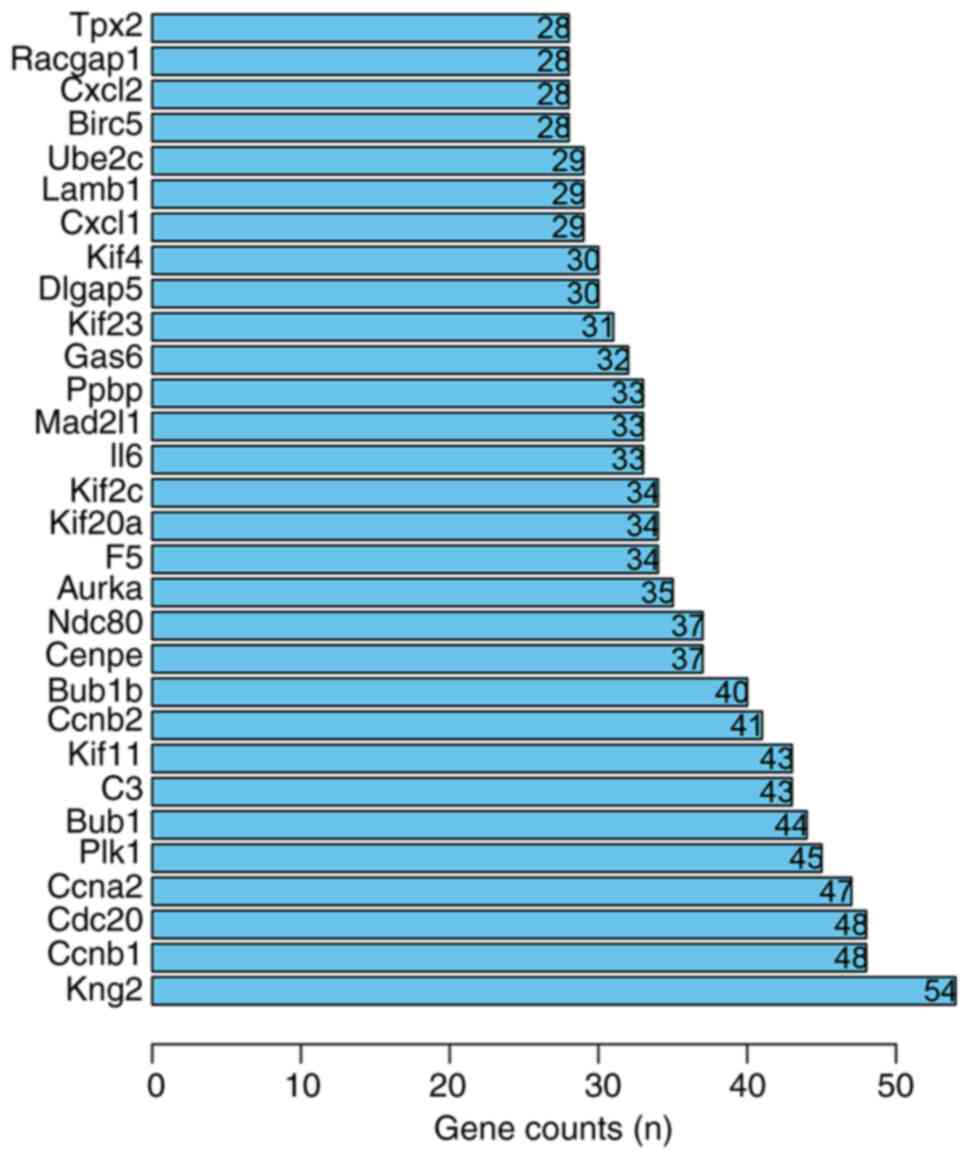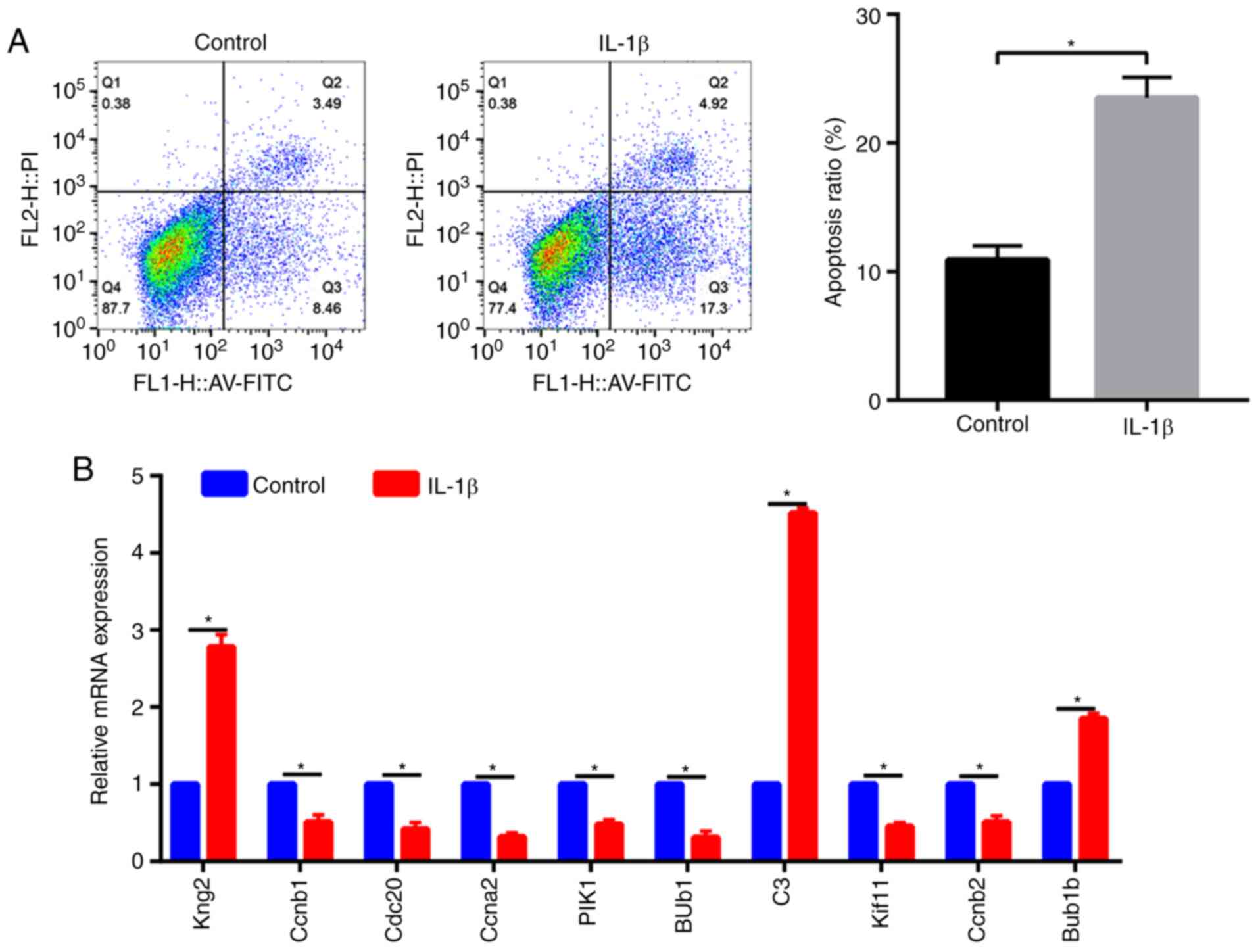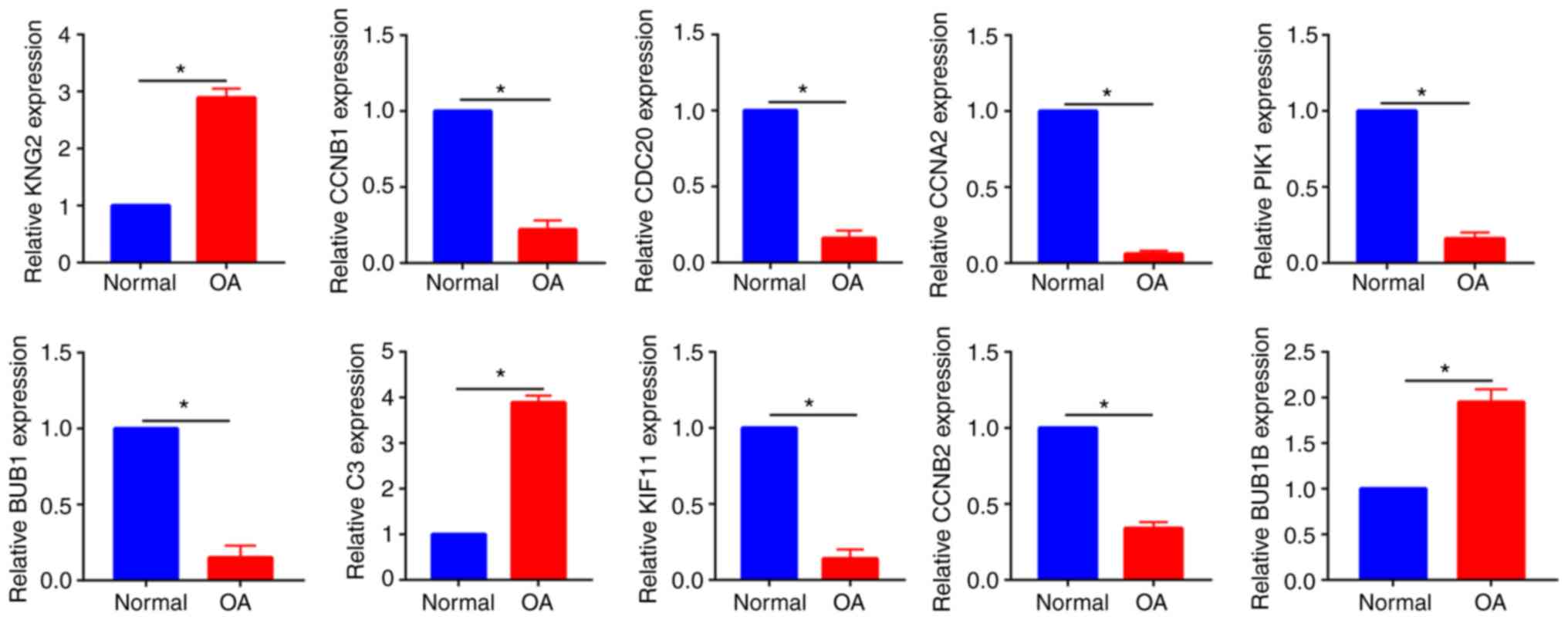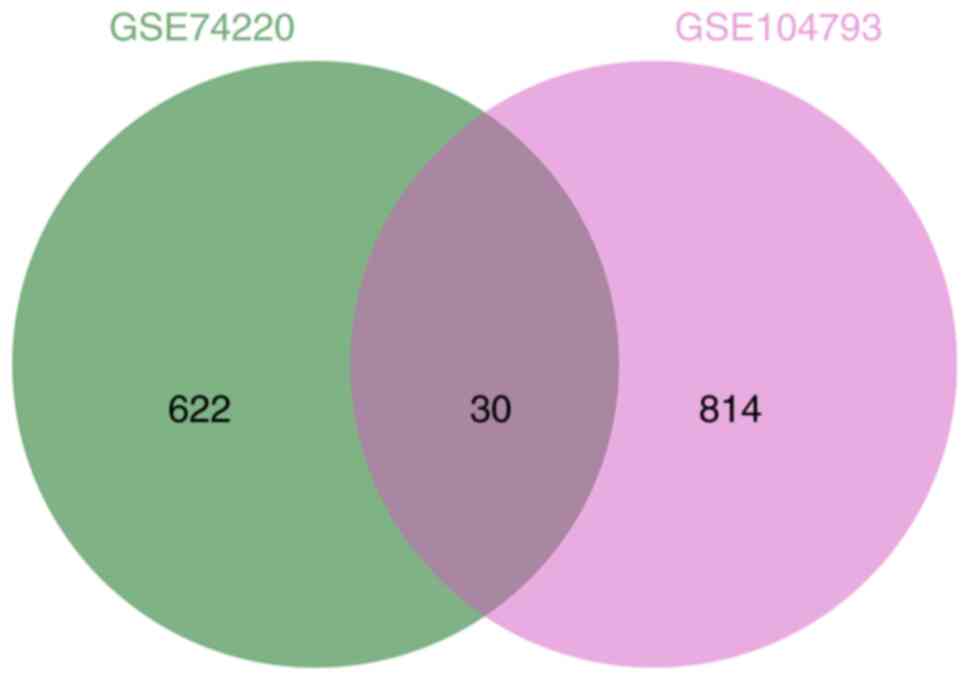|
1
|
Driban JB, Harkey MS, Barbe MF, Ward RJ,
MacKay JW, Davis JE, Lu B, Price LL, Eaton CB, Lo GH and McAlindon
TE: Risk factors and the natural history of accelerated knee
osteoarthritis: Anarrative review. BMC Musculoskelet Disord.
21(332)2020.PubMed/NCBI View Article : Google Scholar
|
|
2
|
Kraus VB and Karsdal MA: Osteoarthritis:
Current molecular biomarkers and the way forward. Calcif Tissue
Int: May 4, 2020 (Epub ahead of print).
|
|
3
|
Huang W, Ong TY, Fu SC and Yung SH:
Prevalence of patellofemoral joint osteoarthritis after anterior
cruciate ligament injury and associated risk factors: A systematic
review. J Orthop Translat. 22:14–25. 2019.PubMed/NCBI View Article : Google Scholar
|
|
4
|
Chen AT, Shrestha S, Collins JE, Sullivan
JK, Losina E and Katz JN: Estimating contextual effect in
nonpharmacological therapies for pain in knee osteoarthritis: A
systematic analytic review. Osteoarthritis Cartilage. 28:1154–1169.
2020.PubMed/NCBI View Article : Google Scholar
|
|
5
|
Luo P, Xiong Z, Sun W, Shi L, Gao F and Li
Z: How to Choose platelet-rich plasma or hyaluronic acid for the
treatment of knee osteoarthritis in overweight or obese patients: A
Meta-Analysis. Pain Res Manag. 2020(7587936)2020.PubMed/NCBI View Article : Google Scholar
|
|
6
|
Zhao Z, Ma JX and Ma XL: Different
Intra-articular injections as therapy for hip osteoarthritis: A
systematic review and network meta-analysis. Arthroscopy.
36:1452–1464.e2. 2020.PubMed/NCBI View Article : Google Scholar
|
|
7
|
Honvo G, Leclercq V, Geerinck A, Thomas T,
Veronese N, Charles A, Rabenda V, Beaudart C, Cooper C, Reginster
JY and Bruyère O: Safety of topical non-steroidal anti-inflammatory
drugs in osteoarthritis: Outcomes of a systematic review and
meta-analysis. Pharmacol Rep. 36 (Suppl 1):S45–S64. 2019.PubMed/NCBI View Article : Google Scholar
|
|
8
|
Gregori D, Giacovelli G, Minto C, Barbetta
B, Gualtieri F, Azzolina D, Vaghi P and Rovati LC: Association of
pharmacological treatments with long-term pain control in patients
with knee osteoarthritis: A systematic review and Meta-analysis.
JAMA. 320:2564–2579. 2018.PubMed/NCBI View Article : Google Scholar
|
|
9
|
Ahmad N, Ansari MY, Bano S and Haqqi TM:
Imperatorin suppresses IL-1β-induced iNOS expression via inhibiting
ERK-MAPK/AP1 signaling in primary human OA chondrocytes. Int
Immunopharmacol. 85(106612)2020.PubMed/NCBI View Article : Google Scholar
|
|
10
|
Dinarello CA: Blocking IL-1 in systemic
inflammation. J Exp Med. 201:1355–1359. 2005.PubMed/NCBI View Article : Google Scholar
|
|
11
|
Shen XF, Cheng Y, Dong QR and Zheng MQ:
MicroRNA-675-3p regulates IL-1β-stimulated human chondrocyte
apoptosis and cartilage degradation by targeting GNG5. Biochem
Biophys Res Commun. 527:458–465. 2020.PubMed/NCBI View Article : Google Scholar
|
|
12
|
Shao J, Ding Z, Peng J, Zhou R, Li L, Qian
Q and Chen Y: MiR-146a-5p promotes IL-1β-induced chondrocyte
apoptosis through the TRAF6-mediated NF-kB pathway. Inflamm Res.
69:619–630. 2020.PubMed/NCBI View Article : Google Scholar
|
|
13
|
Jia Y, He W, Zhang H, He L, Wang Y, Zhang
T, Peng J, Sun P and Qian Y: Morusin Ameliorates IL-1β-Induced
chondrocyte inflammation and osteoarthritis via NF-κB signal
pathway. Drug Des Devel Ther. 14:1227–1240. 2020.PubMed/NCBI View Article : Google Scholar
|
|
14
|
Wu Z, Irizarry RA, Gentleman R,
Martinez-Murillo F and Spencer F: A model-based background
adjustment for oligonucleotide expression arrays. J Am Statistical
Association. 99:909–917. 2004.
|
|
15
|
R Core Team: R: A Language and Environment
for Statistical Computing. R Foundation for Statistical Computing,
Vienna, 2013. http://www.R-project.org/.
|
|
16
|
Zhou Y, Zhou B, Pache L, Chang M,
Khodabakhshi AH, Tanaseichuk O, Benner C and Chanda SK: Metascape
provides a biologist-oriented resource for the analysis of
systems-level datasets. Nat Commun. 10(1523)2019.PubMed/NCBI View Article : Google Scholar
|
|
17
|
Kohl M, Wiese S and Warscheid B:
Cytoscape: Software for visualization and analysis of biological
networks. Methods Mol Biol. 696:291–303. 2011.PubMed/NCBI View Article : Google Scholar
|
|
18
|
Bi W, Huang W, Whitworth DJ, Deng JM,
Zhang Z, Behringer RR and de Crombrugghe B: Haploinsufficiency of
Sox9 results in defective cartilage primordia and premature
skeletal mineralization. Proc Natl Acad Sci USA. 98:6698–6703.
2001.PubMed/NCBI View Article : Google Scholar
|
|
19
|
Johnson CI, Argyle DJ and Clements DN: In
vitro models for the study of osteoarthritis. Vet J. 209:40–49.
2016.PubMed/NCBI View Article : Google Scholar
|
|
20
|
Chen X, Wang R, Chen W, Lai L and Li Z:
Decoy receptor-3 regulates inflammation and apoptosis via PI3K/AKT
signaling pathway in coronary heart disease. Exp Ther Med.
17:2614–2622. 2019.PubMed/NCBI View Article : Google Scholar
|
|
21
|
Zhao Z, Ma X, Ma J, Sun X, Li F and Lv J:
Naringin enhances endothelial progenitor cell (EPC) proliferation
and tube formation capacity through the CXCL12/CXCR4/PI3K/Akt
signaling pathway. Chem Biol Interact. 286:45–51. 2018.PubMed/NCBI View Article : Google Scholar
|
|
22
|
Bai M, Ge L, Chen H and Jin Q: Calcitonin
protects rat chondrocytes from IL-1β injury via the Wnt/β-catenin
pathway. Exp Ther Med. 18:2079–2085. 2019.PubMed/NCBI View Article : Google Scholar
|
|
23
|
Li Z, Cheng J and Liu J: Baicalin protects
human OA chondrocytes against IL-1β-induced apoptosis and ECM
degradation by activating autophagy via MiR-766-3p/AIFM1 axis. Drug
Des Devel Ther. 14:2645–2655. 2020.PubMed/NCBI View Article : Google Scholar
|
|
24
|
Fei Q, Ma H, Zou J, Wang W, Zhu L, Deng H,
Meng M, Tan S, Zhang H, Xiao X, et al: Metformin protects against
ischaemic myocardial injury by alleviating
autophagy-ROS-NLRP3-mediated inflammatory response in macrophages.
J Mol Cell Cardiol. 145:1–13. 2020.PubMed/NCBI View Article : Google Scholar
|
|
25
|
Liu X, Chen Y, Wang H, Wei Y, Yuan Ye,
Zhou Q, Fang F, Shi S, Jiang X, Dong Y and Li X: Microglia-derived
IL-1β promoted neuronal apoptosis through ER stress-mediated
signaling pathway PERK/eIF2α/ATF4/CHOP upon arsenic exposure. J
Hazard Mater,. 417(125997)2021.PubMed/NCBI View Article : Google Scholar
|
|
26
|
Hosaka Y, Saito T, Sugita S, Hikata T,
Kobayashi H, Fukai A, Taniguchi Y, Hirata M, Akiyama H, Chung UI
and Kawaguchi H: Notch signaling in chondrocytes modulates
endochondral ossification and osteoarthritis development. Proc Natl
Acad Sci USA. 110:1875–1880. 2013.PubMed/NCBI View Article : Google Scholar
|
|
27
|
Hsiao HY, Cheng CM, Kao SW, Liu JW, Chang
CS, Harhaus L and Huang JJ: The effect of bone inhibitors on
periosteum-guided cartilage regeneration. Sci Rep.
10(8372)2020.PubMed/NCBI View Article : Google Scholar
|
|
28
|
Hamasaki M, Terkawi MA, Onodera T, Tian Y,
Ebata T, Matsumae G, Alhasan H, Takahashi D and Iwasaki N:
Transcriptional profiling of murine macrophages stimulated with
cartilage fragments revealed a strategy for treatment of
progressive osteoarthritis. Sci Rep. 10(7558)2020.PubMed/NCBI View Article : Google Scholar
|
|
29
|
Gao Y, Wang S, He L, Wang C and Yang L:
Alpinetin protects chondrocytes and exhibits anti-inflammatory
effects via the NF-κB/ERK pathway for alleviating osteoarthritis.
Inflammation. 43:1742–1750. 2020.PubMed/NCBI View Article : Google Scholar
|
|
30
|
Ren YM, Zhao X, Yang T, Duan YH, Sun YB,
Zhao WJ and Tian MQ: Exploring the key genes and pathways of
osteoarthritis in knee cartilage in a rat model using gene
expression profiling. Yonsei Med J. 59:760–768. 2018.PubMed/NCBI View Article : Google Scholar
|
|
31
|
Tew SR, Kwan AP, Hann A, Thomson BM and
Archer CW: The reactions of articular cartilage to experimental
wounding: Role of apoptosis. Arthritis Rheum. 43:215–225.
2000.PubMed/NCBI View Article : Google Scholar
|
|
32
|
Sun J, Yan B, Yin W and Zhang X:
Identification of genes associated with osteoarthritis by
microarray analysis. Mol Med Rep. 12:5211–5216. 2015.PubMed/NCBI View Article : Google Scholar
|
|
33
|
Peyrou M, Cereijo R, Quesada-López T,
Campderrós L, Gavaldà-Navarro A, Liñares-Pose L, Kaschina E, Unger
T, López M, Giralt M and Villarroya F: The kallikrein-kinin pathway
as a mechanism for auto-control of brown adipose tissue activity.
Nat Commun. 11(2132)2020.PubMed/NCBI View Article : Google Scholar
|
|
34
|
Rouhiainen A, Kulesskaya N, Mennesson M,
Misiewicz Z, Sipilä T, Sokolowska E, Trontti K, Urpa L, McEntegart
W, Saarnio S, et al: The bradykinin system in stress and anxiety in
humans and mice. Sci Rep. 9(19437)2019.PubMed/NCBI View Article : Google Scholar
|
|
35
|
Sharma SK and Singh BR: Enhancement of the
endopeptidase activity of purified botulinum neurotoxins A and E by
an isolated component of the native neurotoxin associated proteins.
Biochemistry. 43:4791–4798. 2004.PubMed/NCBI View Article : Google Scholar
|
|
36
|
Jing X, Ye Y, Bao Y, Zhang J, Huang J,
Wang R, Guo J and Guo F: Mechano-growth factor protects against
mechanical overload induced damage and promotes migration of growth
plate chondrocytes through RhoA/YAP pathway. Exp Cell Res.
366:81–91. 2018.PubMed/NCBI View Article : Google Scholar
|
|
37
|
Kim EJ, Oh HY, Heo HS, Hong JE, Jung SJ,
Lee KW and Park JH, Hur CG and Park JH: Biological features of core
networks that result from a high-fat diet in hepatic and pulmonary
tissues in mammary tumour-bearing, obesity-resistant mice. Br J
Nutr. 110:241–255. 2013.PubMed/NCBI View Article : Google Scholar
|
|
38
|
Shi LE, Shang X, Nie KC, Xu Q, Chen NB and
Zhu ZZ: Identification of potential crucial genes associated with
the pathogenesis and prognosis of pancreatic adenocarcinoma. Oncol
Lett. 20(60)2020.PubMed/NCBI View Article : Google Scholar
|
|
39
|
Mi N, Cao J, Zhang J, Fu W, Huang C, Gao
L, Yue P, Bai B, Lin Y, Meng W and Li X: Identification of hub
genes involved in the occurrence and development of hepatocellular
carcinoma via bioinformatics analysis. Oncol Lett. 20:1695–1708.
2020.PubMed/NCBI View Article : Google Scholar
|
|
40
|
Meng Z, Wu J, Liu X, Zhou W, Ni M, Liu S,
Guo S, Jia S and Zhang J: Identification of potential hub genes
associated with the pathogenesis and prognosis of hepatocellular
carcinoma via integrated bioinformatics analysis. J Int Med Res.
48(300060520910019)2020.PubMed/NCBI View Article : Google Scholar
|
|
41
|
Chen C, Guo Q, Song Y, Xu G and Liu L:
SKA1/2/3 serves as a biomarker for poor prognosis in human lung
adenocarcinoma. Transl Lung Cancer Res. 9:218–231. 2020.PubMed/NCBI View Article : Google Scholar
|















